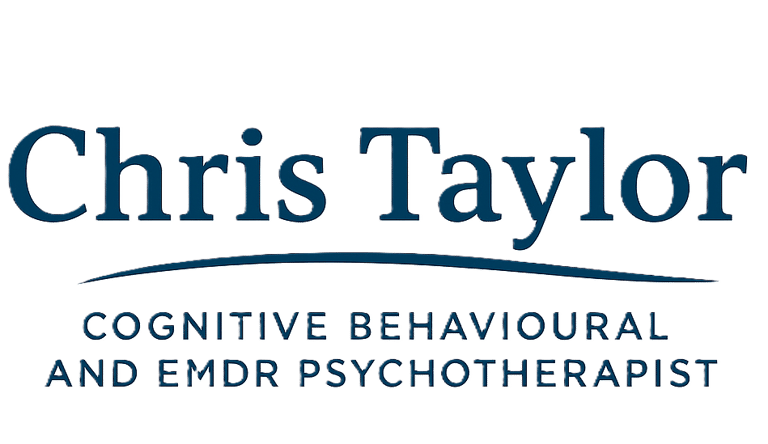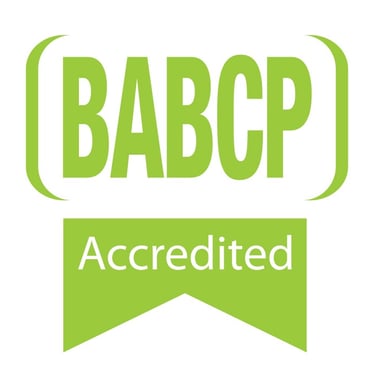If you have experienced a traumatic event or events you know how utterly shocking these can be, While many people experience little or no distress, you may experience the full range of distressing feelings that you experienced at the time of the trauma, as if it were "happening all over again". However, you now have an option to reduced or even fully remove the impact of the trauma's you have experienced, free of fear, flashbacks and nightmares.
Eye Movement desensitisation and Reprocessing (EMDR) is a powerful psychotherapy that helps people to recover from traumatic events. These events may be linked to events like a road traffic accidents or assaults, or be related to difficult experiences in childhood or adolescence.

What is EMDR?
Traumatic events and memories can remain "frozen" in the brain and not processed in the way other memories are. Everyday trigger events, like a car exhaust backfiring connect with these frozen memories leading to repeated distress and reliving of the traumatic event as if it was still happening today. EMDR seeks to reduce the intensity of traumatic memories by a process of "re-processing" so that they can be stored in the long-term memory leading to a life free of the distress associated with past events.
EMDR has established itself as a treatment for post traumatic stress disorder (PTSD), and there is ample evidence as to its effectiveness. The NHS recognises EMDR as an effective therapy for PTSD. Recent evidence also suggests that EMDR is effective for a wide range of psychological problems. A key benefit of EMDR is that it can have faster results when compared to other therapies, though this will be dependent on the complexity of your trauma memories.
What can EMDR help with?


What is EMDR? The video.
EMDR had its origins in 1987 and was the result of observations made by its originator, Dr Francine Shapiro. Dr Shapiro observed that eye movements significantly reduced the distress of combat veterans experiencing PTSD. This work continued to be an effective psychotherapy not only for PTSD and trauma but for a range of psychological problems
Please contact me and we can discuss if and how EMDR may be of benefit for you.
What happens in EMDR?
How EMDR works?
EMDR seems to mimic what happens during REM sleep, when the brain naturally processes day-to-day events into stored memories. EMDR uses "bilateral stimulation" (Eye movements of tapping) to process difficult and painful memories which in turn reduces symptoms such as nightmares, insomnia and flashbacks, no longer triggering overwhelming emotional and anxious responses.

EMDR...personal stories.

Is CBT or EMDR for me?
Cognitive behavioural Psychotherapy (CBT) and EMDR are two very distinct psychotherapeutic approaches, with both aiming to alleviate psychological difficulties. CBT aims to explore the triggers, thoughts, emotional and behavioural aspects of a given problem. EMDR, unlike other psychotherapeutic approaches, does not require in-depth discussion about the details of your trauma as the aim is to "re-process the memory or memories through "bilateral stimulation" (eye movements/tapping etc) to a position where these memories no longer cause distress. EMDR doesn't necessarily involve work outside therapy sessions and is considered to produce improvements over a shorter timeframe, though this can depend on the complexity of the trauma. However, both therapeutic approaches are evidence based and have positive benefits and outcomes.
1. Evidence-Based and Integrative
EMDR is an evidence-based integrative psychotherapy for trauma related disorders, other psychological disorders and mental health problems.
2. Adaptive Information Processing (AIP) Model
EMDR is based on the AIP model, which suggests that many psychological issues are caused by the improper storage and processing of traumatic or distressing experiences.
3. Resumption of Normal Processing
EMDR therapy enables the resumption of normal information processing and integration, addressing past experiences and pathogenic memories, current triggers, and future challenges.
4. Alleviation of Symptoms
EMDR results in the alleviation of the presenting symptoms, decreased or eliminated distress from disturbing memories, improved self-view, relief from bodily disturbances and resolution of present disturbing and future anticipated triggers.
5. Standardised Procedures
EMDR uses a standardised set of procedures and clinical protocols, including dual focus of attention and alternating bilateral visual, auditory, and tactile stimulation to resolve the above mentioned traumatic and disturbing adverse life experiences.
6. Activation of Memory Components
This process activates memory components of disturbing life events and facilitates / re-activates normal adaptive information processing and integration.
7. Optimisation of Client Stabilisation
EMDR optimises client stabilisation before, during and after the reprocessing of distressing and pathogenic memories and associated stimuli.
8. Minimal Therapist Intervention
The therapy facilitates the client's innate ability to heal, with minimal therapist intervention necessary for the continuity of information reprocessing based on a proper and carefully established individual treatment plan.
9. Structured Phases
EMDR therapy consists of eight phases, including history taking, preparation, assessment, desensitisation, installation of new adaptive information, body scan, closure, and re-evaluation.
10. Effectiveness for Children and Adolescents
Recognised by the World Health Organisation and the International Society for Traumatic Stress Studies, EMDR is effective for children and adolescents who have experienced traumatic events and PTSD, as well as other psychological difficulties like anxiety and depression.
11. Global Recognition
EMDR is globally recognised for its efficacy and has been endorsed by major health organisations for treating trauma in both adults and children.
Reasons why you should choose EMDR therapy (EMDR Europe).






